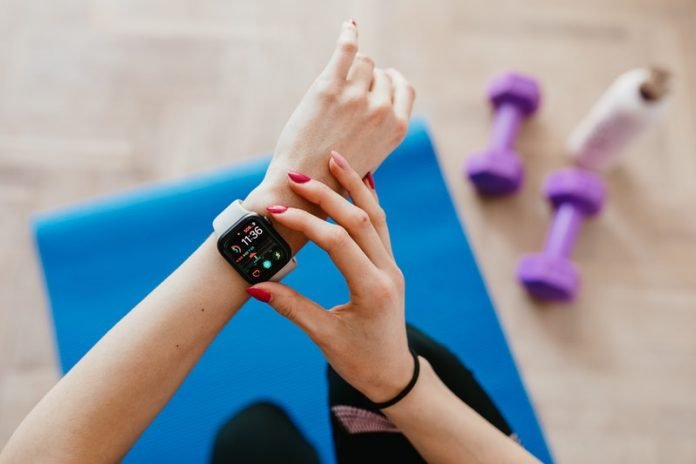
In a new study from the Scripps Research Translational Institute, researchers found that fitness trackers such as Fitbits or the Apple Watch can help track people’s recovery from COVID-19 and are revealing just how long-term that recovery is.
In the study, the team used data from 875 Fitbit-wearing people, 234 of who tested positive for COVID-19.
Data from the wearable devices showed that people who tested positive for COVID-19 had behavioral and physiological symptoms, including an increased heart rate, that could persist for weeks or months.
These symptoms lasted longer in people with COVID-19 than in those with other respiratory illnesses.
The team found it took 79 days, on average, for their resting heart rates to return to normal, compared with just four days for those in the non-COVID group.
This may be a sign that COVID-19 disrupts the autonomic nervous system, which regulates basic physiological processes.
The heart palpitations and dizziness reported by many COVID sufferers may be symptoms of this disruption.
The team says lots of people who get COVID end up getting autonomic dysfunction and a kind of ongoing inflammation, and this may adversely affect their body’s ability to regulate their pulse.
The findings showed that wearable devices can offer an ability for researchers to be able to monitor people unobtrusively over long periods of time to see in an objective way.
Several previous studies have suggested that wearable fitness trackers—which can gather data on heart rate, body temperature, physical activity and other health information—may also help detect the early signs of COVID-19.
If you care about COVID, please read studies about this plant extract can inhibit COVID-19 virus and findings of mammograms and the COVID-19 vaccine: What you need to know.
For more information about COVID and your health, please see recent studies about COVID vaccines: some fully vaccinated people will still get infected – here’s why and results showing that many Americans take immune-weakening drugs that may lower COVID vaccine response.
The study is published in JAMA Network Open. One author of the study is Jennifer Radin.
Copyright © 2021 Knowridge Science Report. All rights reserved.



